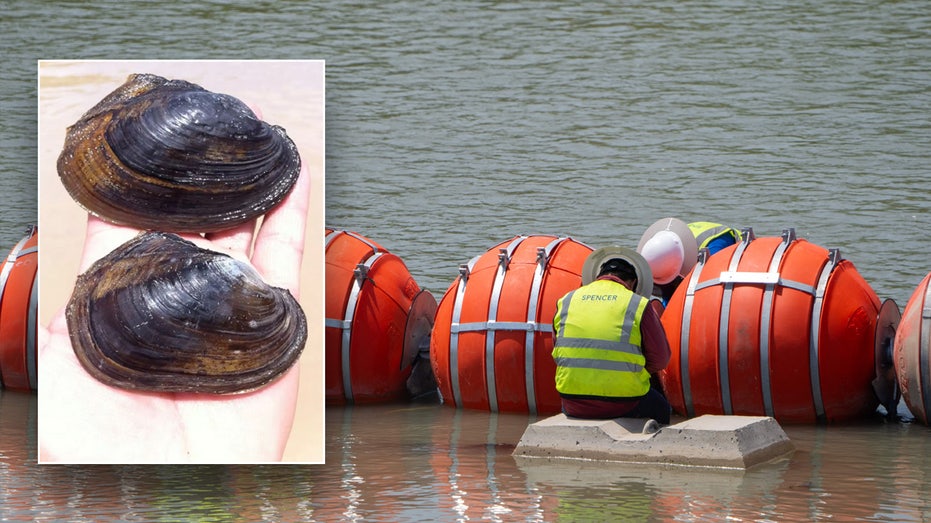FIRST ON FOX: Republican lawmakers are quizzing the Biden administration on a decision to list two mussels as endangered, a move which could complicate efforts by Texas to build a buoy barrier in the Rio Grande — with the lawmakers expressing concern that it may be politically motivated.
In a letter to President Biden and Interior Secretary Deb Haaland, lawmakers led by Rep. Jodey Arrington, R-Texas, question the move by the U.S. Fish and Wildlife Service (FWS) to propose two species of freshwater mussels — the Salina mucket and Mexican fawnsfoot — be protected under the Endangered Species Act, which would designate critical habit for both. The mussels are typically seen in the Rio Grande in Texas.
The FWS said that the populations of both species “have low abundance, limited recruitment, and no ability to disperse into new areas, they are extremely vulnerable to extinction.”
ABBOTT PROMISES ‘EVEN MORE BUSES’ IF BIDEN ADMIN PUSHES REPORTED PLAN TO KEEP MIGRANTS IN TEXAS
“In making this proposed listing determination, the Service carefully assessed the status of the Rio Grande mussels, including the past, present and future threats that they face,” the FWS said in a statement, adding that the decision was made on the best scientific information available on the two mussels.
But the lawmakers say the timing of the ruling is “highly suspicious,” given that it came in July at the same time as the Justice Department was launching a court challenge against Texas Gov. Greg Abbott’s decision to build a buoy barrier to stop illegal immigrants in the Rio Grande.
“It is worth noting that a petition for the Salina mucket was filed in 2007 and for the Mexican fawnsfoot in 2008,” they say. “That means, the Service sat on these petitions for more than fourteen years before making a listing decision on these species.”
“In addition, the Service has proposed nearly 300 river miles of critical habitat for the mussels along the border,” they say. “This action will not only impact the State of Texas’ ability to protect the border and its citizens, but also the ability of the U.S. Border Patrol to accomplish its mission of protecting the American people and safeguarding our borders.”
They argue that any border security operations related to critical habitat “must go through a consultation process with the Service.”
COURT LETS TEXAS KEEP FLOATING BORDER BUOYS IN RIO GRANDE — FOR NOW
“This process can be lengthy and will most assuredly hamper vital daily border security operations,” they say.
The lawmakers note the ongoing crisis at the southern border, which has seen hundreds of thousands of migrants cross the border each month. There were more than 180,000 migrant encounters in July alone.
They argue that the administration should be more concerned about the impact of the mass migration crisis on the plight of the mussels.
“To put it simply, if you are truly concerned about these species, you would enforce border laws to stop illegal migrants from crossing the Rio Grande and trampling the habitat for these species. If you want to protect the mussels, stop the crossings — not the buoys,” they say.
The lawmakers wish to know why the designation took so long, if the decision was related to the border buoys, and the causes of the endangerment of the species — and if that includes migrant crossings. They are also asking the rule be withdrawn, and call on the administration to “enforce the laws passed by Congress to defend our southern border.”
“The American people need you to focus on combating the cartels and protecting our communities, not peppering states with frivolous lawsuits under the guise of conservation,” they say.
Abbott’s border barrier, set up to stop illegal immigration across the Rio Grande, was dealt a blow this week when a federal judge ordered the barrier be removed in response to the DOJ lawsuit. But a stay on that order was issued Thursday by the U.S. Court of Appeals for the Fifth Circuit as the case makes its way through the courts.
Fox News’ Bradford Betz contributed to this report.
Latest Political News on Fox News Read More



